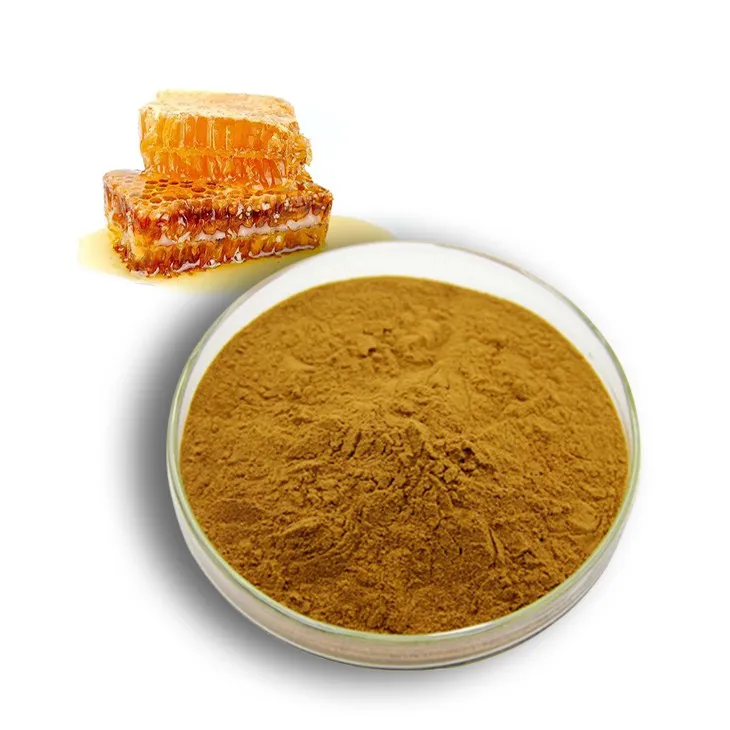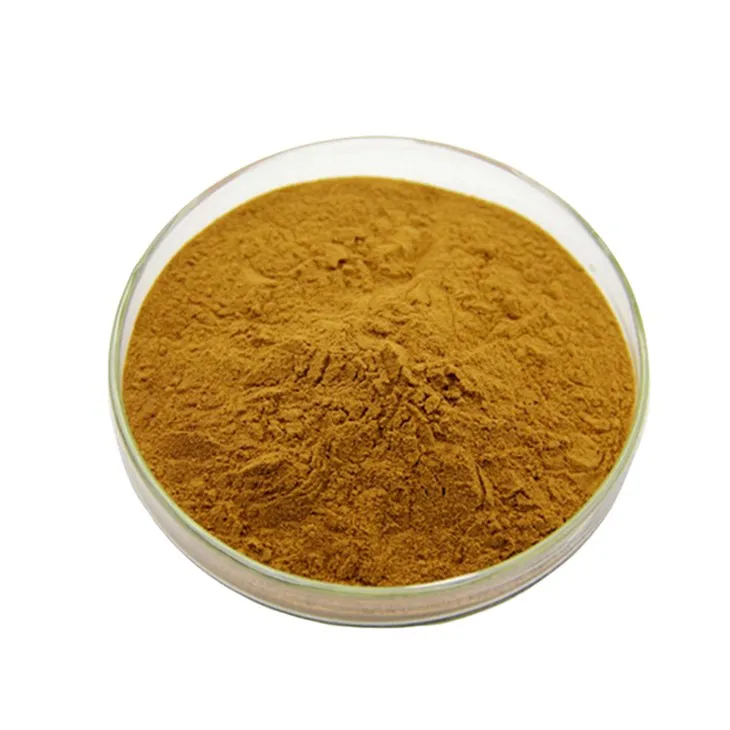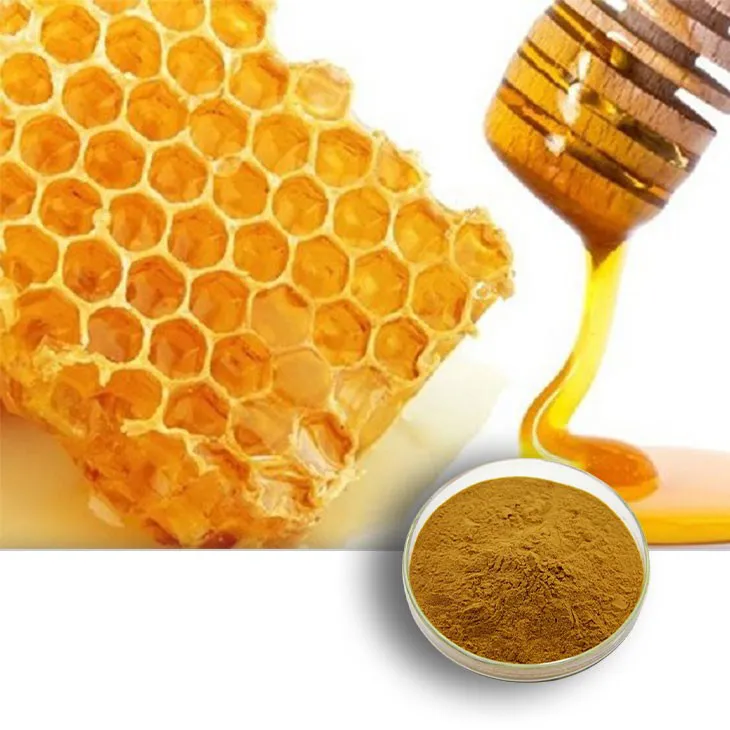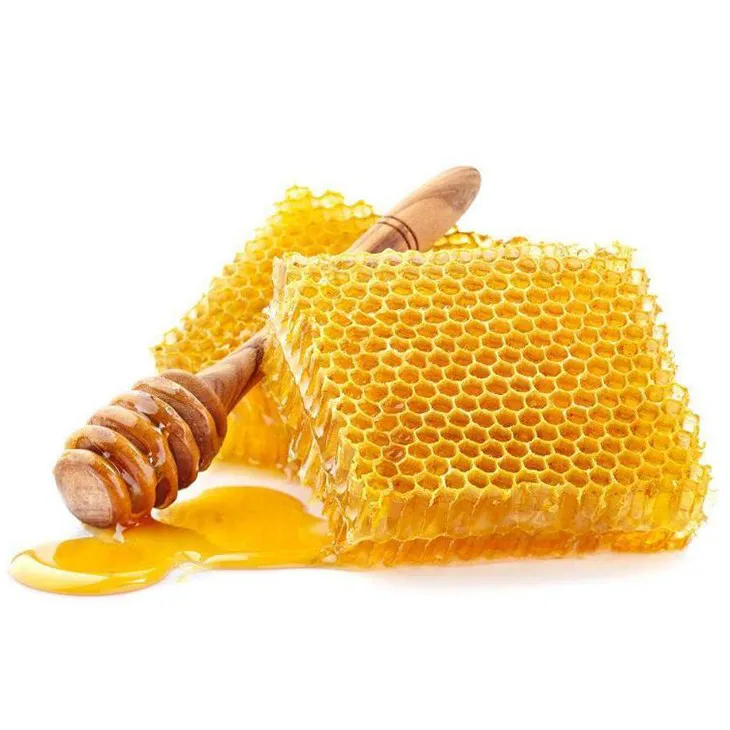- 0086-571-85302990
- sales@greenskybio.com
The best sources of natural propolis extract powder.
2024-11-28

Introduction
Propolis Extract Powder has been gaining significant popularity in recent years due to its remarkable antioxidant, antibacterial, and anti - inflammatory properties. This natural substance, which is collected and processed by bees, has found applications in various fields such as medicine, cosmetics, and food supplements. However, not all Propolis Extract Powders are of the same quality. The quality of propolis depends on several factors, including the source of the propolis. In this article, we will explore the best sources of natural Propolis Extract Powder, taking into account the bee species, climate, and beekeeping practices.

The Role of Bee Species in Propolis Quality
Different bee species produce propolis with distinct qualities. Here are some of the most important bee species in relation to propolis production:
Apis mellifera
Apis mellifera, also known as the Western honey bee, is one of the most common bee species used in beekeeping worldwide. The propolis produced by this bee species is rich in flavonoids, phenolic acids, and other bioactive compounds. The chemical composition of Apis mellifera propolis may vary depending on the geographical location of the hive. For example, propolis from hives in Europe may have a different chemical profile compared to propolis from hives in South America. However, in general, Apis mellifera propolis is known for its strong antibacterial and antioxidant properties.
Apis cerana
Apis cerana, the Asian honey bee, is another important source of propolis. Propolis produced by Apis cerana has been found to contain unique bioactive compounds that are not present in Apis mellifera propolis. For instance, some studies have shown that Apis cerana propolis has higher levels of certain flavonoids, which may contribute to its enhanced antioxidant and anti - inflammatory activities. Moreover, Apis cerana is adapted to different environmental conditions compared to Apis mellifera, which may result in differences in the quality and composition of the propolis it produces.
Stingless Bees
Stingless bees are a diverse group of bees that are native to tropical and subtropical regions. The propolis produced by stingless bees, also known as "cerumen," has unique properties. Stingless bee propolis often contains a higher proportion of resins from specific plant sources compared to honey bee propolis. This gives it a distinct chemical composition and potential health benefits. For example, some studies have suggested that stingless bee propolis may have stronger antibacterial activity against certain pathogens. However, stingless bee propolis is less studied compared to honey bee propolis, and more research is needed to fully understand its potential.

The Impact of Climate on Propolis Quality
Climate plays a crucial role in the formation of high - quality propolis. The following are some of the ways in which climate can affect propolis quality:
Temperature
Temperature can influence the availability of plant resins, which are the main raw materials for propolis production. In warmer regions, plants may produce more resins, which can lead to a higher quantity of propolis being produced by bees. However, extreme temperatures can also have a negative impact on propolis quality. For example, high temperatures may cause the degradation of some bioactive compounds in propolis, while low temperatures may slow down the production process. Bees in regions with a moderate temperature range are more likely to produce propolis with a stable and high - quality chemical composition.
Rainfall
Rainfall is another important climatic factor. Adequate rainfall is necessary for the growth of plants that provide resins for propolis. Insufficient rainfall can lead to a scarcity of resin - producing plants, resulting in a lower quantity and potentially lower quality of propolis. On the other hand, excessive rainfall can wash away resins from plants or cause flooding, which can also disrupt the propolis production process. Regions with a well - balanced rainfall pattern are more favorable for the production of high - quality propolis.
Seasonal Variations
Seasonal variations can also affect propolis quality. Different seasons may bring changes in the types and availability of plant resins. For example, in spring, plants may produce new resins that are rich in certain bioactive compounds. Bees that collect these resins during spring may produce propolis with a different chemical profile compared to propolis produced in other seasons. Additionally, the activity level of bees can vary with the seasons, which can influence the amount and quality of propolis they produce.

The Influence of Beekeeping Practices on Propolis Quality
Human - managed beekeeping practices can have a significant impact on the quality and source of the best natural propolis extract powder. Here are some of the key aspects of beekeeping practices that need to be considered:
Hive Management
Proper hive management is essential for ensuring high - quality propolis production. This includes maintaining clean and healthy hives, providing adequate space for the bees, and controlling pests and diseases. A well - managed hive can create a favorable environment for bees to collect and process resins, resulting in better - quality propolis. For example, if a hive is overcrowded, bees may be stressed, which can affect their ability to produce high - quality propolis. On the other hand, a hive that is too sparse may not provide enough bees to collect an adequate amount of resins.
Feeding Practices
The feeding practices of beekeepers can also influence propolis quality. In some cases, beekeepers may need to supplement the bees' diet with sugar syrup or pollen substitutes. The type and quality of these supplements can affect the health of the bees and, consequently, the quality of the propolis they produce. For example, if the sugar syrup contains impurities or is of low quality, it may weaken the bees' immune system, making them less able to produce high - quality propolis. On the contrary, providing high - quality supplements can enhance the bees' health and improve propolis quality.
Harvesting and Processing
The way in which propolis is harvested and processed also plays a crucial role in determining its quality. Harvesting should be done at the right time to ensure that the propolis has reached its optimal maturity. Premature harvesting may result in propolis with a lower content of bioactive compounds. Additionally, the processing methods used, such as extraction techniques and drying processes, can affect the chemical composition of the propolis extract powder. For example, using harsh extraction solvents may damage some of the bioactive compounds in propolis, while improper drying can lead to the growth of mold or bacteria.

Conclusion
In conclusion, the best sources of natural propolis extract powder are influenced by multiple factors. The bee species, climate, and beekeeping practices all play important roles in determining the quality of propolis. Different bee species produce propolis with distinct chemical compositions and potential health benefits. Climate factors such as temperature, rainfall, and seasonal variations can affect the availability of plant resins and the quality of propolis produced. Moreover, human - managed beekeeping practices, including hive management, feeding practices, and harvesting and processing, can have a significant impact on the quality of propolis. By understanding these factors, we can better identify and source high - quality natural propolis extract powder for various applications in medicine, cosmetics, and food supplements.
FAQ:
What are the main bee species that produce high - quality propolis?
There are several bee species known for producing good - quality propolis. For example, the Apis mellifera is one of the most common and widely studied bee species in relation to propolis production. Different subspecies of Apis mellifera may also produce propolis with slightly different characteristics. Another species like Apis cerana also produces propolis, but the composition may vary compared to that of Apis mellifera. The quality of propolis can depend on the bee's foraging habits, the types of plants available in their environment, and their genetic makeup.
How does climate affect the quality of propolis?
Climate plays a significant role in the formation of high - quality propolis. In regions with a diverse and rich flora, which is often influenced by a favorable climate, bees have access to a wider variety of plant resins. A stable climate with appropriate temperature and rainfall patterns can ensure the healthy growth of plants that provide the raw materials for propolis. For example, in warm and humid climates, certain plants may thrive and produce resins with unique chemical compositions. These resins, when collected by bees to form propolis, can contribute to different antioxidant, antibacterial, or anti - inflammatory properties. Extreme climates, on the other hand, may limit the availability of certain plants or affect the bees' ability to forage, potentially reducing the quality of propolis.
What are the key aspects of human - managed beekeeping practices that can enhance propolis quality?
One important aspect is the location of the beehives. Placing hives in areas rich in diverse plant life can provide bees with a greater variety of resin sources, which can lead to better - quality propolis. Another aspect is proper hive management, such as maintaining clean and healthy hives. This helps to reduce stress on the bees and allows them to focus on collecting and processing resins. Additionally, beekeepers can monitor the health of the bee colonies regularly. Healthy bees are more likely to produce high - quality propolis. Also, minimizing the use of pesticides and other chemicals near the hives is crucial, as these can contaminate the propolis and affect its quality.
How can one identify high - quality natural propolis extract powder?
There are several ways to identify high - quality natural propolis extract powder. Firstly, the color can be an indicator. High - quality propolis extract powder often has a characteristic color, usually ranging from brown to dark brown. Secondly, the smell can also give clues. It typically has a distinct, resinous aroma. Thirdly, the source of the propolis is important. If it comes from a region known for its rich plant diversity and healthy bee populations, it is more likely to be of good quality. Laboratory analysis can also be done to determine the presence and concentration of active compounds such as flavonoids, which are associated with the antioxidant, antibacterial, and anti - inflammatory properties of propolis.
Are there any regions known for producing the best natural propolis extract powder?
Yes, there are certain regions known for producing high - quality propolis. For example, regions in Brazil are renowned for their propolis production. The diverse Amazon rainforest flora provides bees with a wide range of resin - rich plants. In addition, some parts of Europe, like the Mediterranean region, also produce good - quality propolis due to the presence of a variety of native plants. These regions have a suitable climate and rich plant ecosystems that support the production of high - quality propolis.
Related literature
- Propolis: A Wonder Beehive Product and Its Pharmacological Potentials"
- "The Chemical Composition and Biological Properties of Propolis: A Review"
- "Propolis Quality: Factors Affecting Its Composition and Properties"
- ▶ Hesperidin
- ▶ citrus bioflavonoids
- ▶ plant extract
- ▶ lycopene
- ▶ Diosmin
- ▶ Grape seed extract
- ▶ Sea buckthorn Juice Powder
- ▶ Beetroot powder
- ▶ Hops Extract
- ▶ Artichoke Extract
- ▶ Reishi mushroom extract
- ▶ Astaxanthin
- ▶ Green Tea Extract
- ▶ Curcumin Extract
- ▶ Horse Chestnut Extract
- ▶ Other Problems
- ▶ Boswellia Serrata Extract
- ▶ Resveratrol Extract
- ▶ Marigold Extract
- ▶ Grape Leaf Extract
- ▶ blog3
- ▶ blog4
-
The best lemon juice powder in nature.
2024-11-28
-
Organic Vitamin K2 Powder Suppliers
2024-11-28
-
Bulk purchase of L - tyrosine.
2024-11-28
-
Vitamin K2 Manufacturers
2024-11-28
-
100% Pure Natural Rutin.
2024-11-28
-
Chinese Citrus Bioflavonoid Suppliers.
2024-11-28
-
Saffron Extract Powder
2024-11-28
-
Natural grape seed extract
2024-11-28
-
American Ginseng Root Extract
2024-11-28
-
Andrographis Paniculata Extract Powder
2024-11-28
-
Maitake Mushroom Extract
2024-11-28
-
Curcuma Longa Extract
2024-11-28
-
Berberis aristata Extract
2024-11-28
-
Quercetin
2024-11-28
-
Sea buckthorn Juice Powder
2024-11-28
-
Bilberry Extract
2024-11-28





















